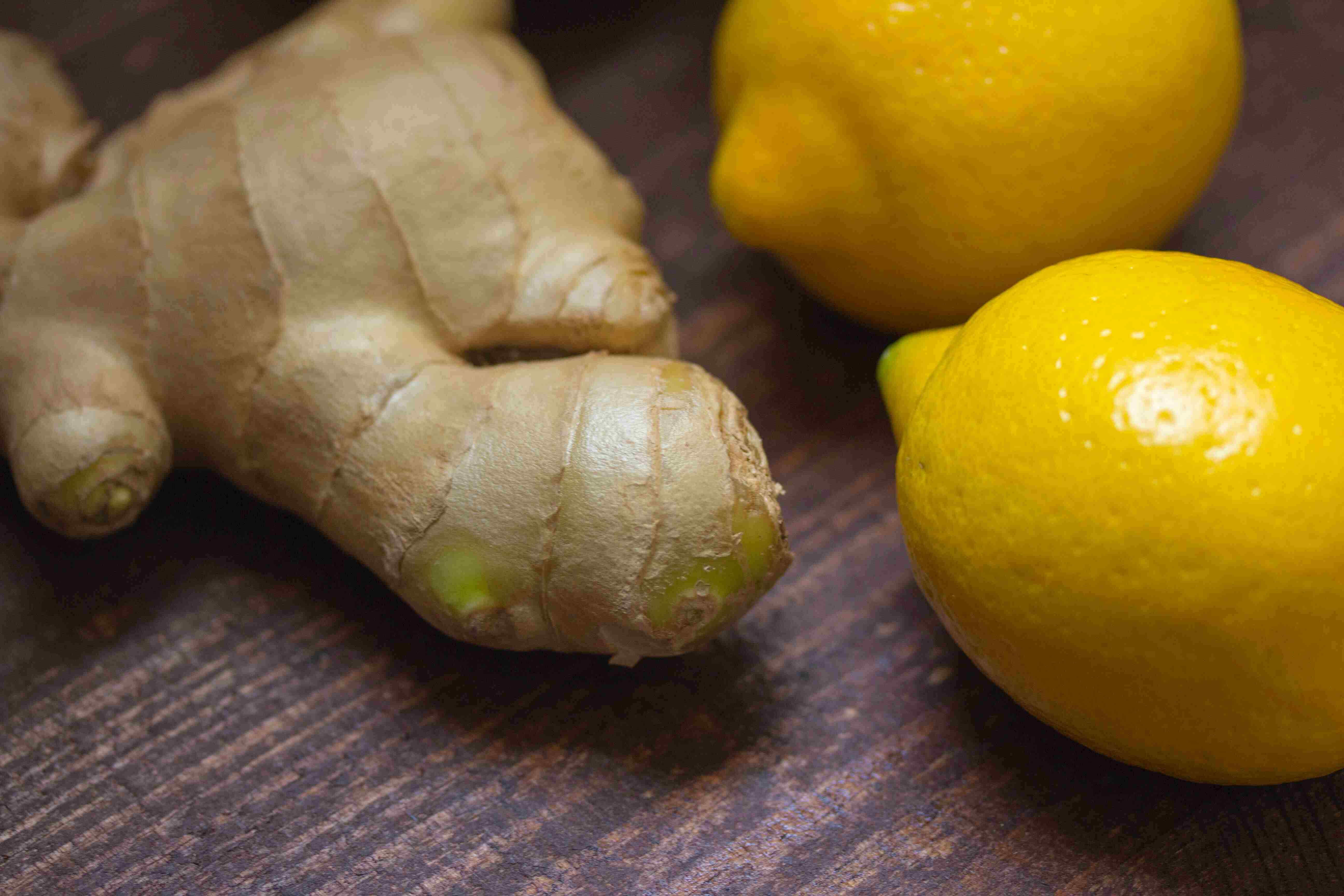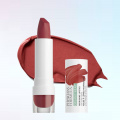Unlock Your Senses With These 8 Remedies for Loss of Taste And Smell
Revive your senses with the help of some natural remedies for loss of taste and smell. Consider using essential oils, citrus, and ginger among other things.

Anosmia and ageusia can seriously impact the quality of life and obstruct your overall enjoyment. Hence, it’s vital that you learn about all the natural remedies for loss of taste and smell so you don’t have to entirely depend on medicines. These could also be useful for those who are allergic to certain cold medications and for those who can’t take extra medicines for reasons including pregnancy or other severe health problems. These remedies will effectively enhance your experiences with food, beverages, and the world around you, adding depth, pleasure, and richness to your everyday lives.
How Do Smell And Taste Work?
Before we answer your question about how to get your taste back and smell back, let’s find out how these two work closely together to contribute to our perception of flavor when in fact, they are completely separate senses. Read along and find all your answers.
Smell, also known as olfaction, is the ability to perceive things with the help of their aroma and odor. When we encounter an odor, such as the aroma of food, an atmosphere like the beach, or the scent of a flower, a complex process begins. Volatile odor molecules are released into the air, and as we inhale, these molecules enter our nasal passages (1). Within our nasal passages, we have specialized cells called olfactory receptors. These receptors have the incredible ability to detect specific odor molecules based on their shape. It's like a lock-and-key mechanism, where each odor molecule fits into a specific receptor.
When an odor molecule binds to an olfactory receptor, it triggers a cascade of events. In simple words, even before you taste a specific food like pizza or pasta, the rich smell of it has the ability to evoke emotions associated with it. The receptor sends a nerve signal that travels to the olfactory bulb, which is located at the base of the brain. In the olfactory bulb, the signals from different receptors are processed and combined, forming a unique pattern that represents the specific odor.
On the other hand, taste, also known as gustation, primarily occurs on the tongue, as well as on the roof of the mouth and in the throat (2). Taste buds are specialized structures that house taste receptor cells. These receptor cells have proteins called taste receptors on their surface. Each taste receptor is responsible for detecting a specific taste sensation. The five primary taste sensations we perceive are sweet, sour, salty, bitter, and umami.
Now, when we eat or drink, the molecules from the food or beverage come into contact with the taste receptors on the taste buds. These molecules bind to specific taste receptors, and this binding triggers a series of events within the taste receptor cells. These events generate nerve signals from the taste buds and process them. It integrates the signals from different taste receptors to create our perception of taste.
The true magic happens when smell and taste come together. The brain integrates the information from both senses to create our overall perception of flavor. As we eat, the odor molecules from the food or drink are released and travel up to the back of our nasal passages. Simultaneously, the taste buds on our tongue detect the basic taste sensations.
When we chew and swallow, the air we inhale carries the odor molecules into our nasal cavity. The odor molecules then come into contact with the olfactory receptors, triggering the olfactory neurons and nerve signals. The brain seamlessly integrates these signals with the taste nerve signals it receives from the taste buds. The result is a harmonious blend of taste and aroma, creating a multi-dimensional flavor experience.
This integration of smell and taste allows us to perceive the complex and nuanced flavors of the food and beverages we enjoy. It adds depth, richness, and enjoyment to our culinary experiences. That’s why a sudden loss of taste and smell can significantly diminish your love for food and can put you in a terrible mood most of the time.
Causes of Loss of Taste and Smell
Loss of taste and smell, known as anosmia and ageusia, can have various causes. Here are some common factors that can contribute to the loss of these senses:
1. Viral infections or illnesses
Upper respiratory infections are what cause loss of taste and smell(1). The common cold, flu, and sinus infections, can temporarily impair the sense of smell and taste. This is due to the fact that viruses can cause inflammation and swelling in the nasal passages, affecting the function of the olfactory receptors and taste buds. In these cases, some remedies for loss of taste and smell can easily get back your senses.
2. Nasal congestion
Conditions like allergies, sinusitis, or nasal polyps can lead to taste loss, nasal congestion, and blockage. When the nasal passages are obstructed, it can interfere with the ability of odor molecules to reach the olfactory receptors, resulting in a diminished sense of smell(2). Taste is also closely linked to smell, so nasal congestion can affect taste perception as well.
3. Head injuries
Your senses carry information from your nose and tongue to the brain. Therefore, traumatic head injuries, such as concussions or fractures involving the skull or face, can damage the olfactory nerves or affect the structures involved in smell and taste. This can lead to temporary or permanent loss of smell and taste sensations(3).
4. Nasal or sinus surgeries
Certain surgical procedures involving the nasal passages or sinuses can disrupt the sense of smell or taste. This can occur due to damage to the olfactory nerves or interference with the normal functioning of the sensory structures (4).
5. Aging
As we age, it is common for the sense of smell and taste to decline gradually (5). This age-related decline, known as presbyosmia and presbygeusia, can affect the intensity and sensitivity of these senses. That’s why we need to encourage older people to often take part in smell training exercises.
6. Medications
Some medications, such as certain antibiotics, antihistamines, and chemotherapy drugs, may have side effects that include temporary or permanent loss of smell or taste (6).
7. Hormonal changes
Hormonal changes, particularly during pregnancy, can affect the sense of smell and taste. Many pregnant women experience temporary alterations in their ability to smell or taste certain foods(7).
8. Smoking
Smoking can damage the olfactory receptors and taste buds over time, leading to a deteriorating sense of smell and taste (8).
9. Neurological conditions
Certain neurological disorders, including Parkinson's disease, Alzheimer's disease, multiple sclerosis, and some types of brain tumors, can cause loss of smell and taste as a result of nerve damage or disruptions in the brain regions responsible for these senses (9).
8 Home Remedies for Loss of Taste and Smell

There are many home remedies for loss of taste and smell that will help you open them up a little by little. Here are some to restore taste buds and smell the aromatic food and the divine scent of flora again.
1. Essential oils
When looking for ways on how to get taste and smell back after a cold, you can try to alleviate your nasal congestion with the help of essential oils such as eucalyptus oil, peppermint, tea tree, rosemary, lavender, warm castor oil, and lemon. These oils are known for their decongestant properties (10). They help in opening up the airways and promoting easier breathing. Furthermore, rosemary oil is useful for clearing mucus and congestion in the respiratory system (10). Hence, each oil has its own properties in alleviating nasal blockage and promoting relaxation.
2. Nasal rinses
Promote a sense of freshness and reopen your blocked passages by trying the nasal irrigation method that has proven to be a safe and effective treatment for loss of taste and smell (11). You have the option of purchasing a pre-made saline solution or you can make it at home by mixing 1 teaspoon of non-iodized salt and 1/4 to 1/2 teaspoon of baking soda in 2 cups of distilled or sterile water. Transfer this to a neti pot and position yourself near a sink. Take a deep breath and pour it in one of the nostrils while keeping your head tilted. Flush the mucus out through the other nostril.
3. Steam inhalation
If you are experiencing a loss of taste with a cold, then try to do the steam inhalation at least twice or thrice a day. All you have to do is prepare the steam by boiling hot water. You can also infuse the water with essential oils like rosemary, eucalyptus, or peppermint to clear mucus and get rid of blocked nasal passages.(12)
4. Garlic tea
Garlic is famous for its strong aroma and taste, and it has been used for its potential health benefits in various cultures for centuries. Even though it is important to note that there is little to no scientific evidence directly linking garlic tea to the improvement of loss of smell and taste, it still is a recommended way of treating colds and sinuses. Just add two cloves of crushed garlic to boiling hot tea and strain it just as you would strain the tea leaves. You can also add lemon if you want to balance the strong taste of garlic with citrus.
5. Sesame oil
If you don’t know how to get your smell back, then try sesame oil. This oil has been used in traditional medicine practices, including Ayurveda, for its potential health benefits. It is believed to possess anti-inflammatory and antimicrobial properties that may help alleviate nasal blockage, congestion, and dryness (13). To note, you need to ensure that you are using pure oil that doesn’t have any additives or fragrances. Heat the oil for a few seconds and lie on the bed with your head tilted back. Put a few drops on both nostrils one after the other and stay still for a couple of minutes. Lastly, massage the nostrils to evenly spread the oil.
6. Ginger
Ginger is another way to regain your loss of sense of taste and smell disorder. It is a natural ingredient that’s known for its anti-inflammatory and decongestant properties (14). It can help to alleviate nasal blockage and congestion by reducing inflammation in the nasal passages and promoting better airflow. You can try ginger tea, ginger steam inhalation, and ginger oil. If none of these work, you can try to grate a small slice of ginger and mix it with a spoonful of honey. Gulp it down twice or thrice a day.
7. Stay hydrated
If you think drinking just one cup of water is enough to stay hydrated, you couldn’t be more wrong. Always remember that hydration is important with or without the nasal blockage issue. You need to drink plenty of water even if your health condition is absolutely fine and when you are dealing with inflamed taste buds, water can help keep mucus membranes in the nasal passages moist and potentially improve smell and taste sensations.
8. Maintain proper oral hygiene
Maintaining good oral hygiene by brushing your teeth, flossing, and using mouthwash regularly can help keep your taste buds clean and potentially improve taste sensations.
Diagnosis of Loss of Taste and Smell
The diagnosis of loss of taste and smell, also known as anosmia and ageusia respectively, typically involves a comprehensive evaluation by a healthcare professional. They will consider things like your medical history, including any previous illnesses, allergies, or conditions that may be related to the loss of taste and smell. They may inquire about recent upper respiratory infections, head trauma, nasal surgeries, exposure to chemicals or toxins, or any medications you are currently taking.
Once they identify what the actual cause is, they may do a physical examination to assess the nasal passages, sinuses, and oral cavity for any signs of inflammation, infection, or structural abnormalities that could contribute to your problems. Then, specialized tests will be done to evaluate the extent of this issue. These tests may involve smelling different scents, such as essential oils and specific substances, or tasting various flavors and substances. The healthcare professional will evaluate your responses and compare them to expected norms.
In addition to that, if you have any serious problem like a head injury, structural abnormalities in the nose, or any lesion, then imaging studies such as a CT scan or MRI may be recommended to examine the nasal passages. Once they pinpoint where this problem is stemming from, they will be able to tell you how to go about it and if it can be easily cured with the help of home remedies for loss of taste and smell.
Prevention Tips
To help prevent the loss of smell and taste, consider implementing the following tips in your daily life:
1. Maintain good hygiene
Practice good hygiene habits, such as washing your hands frequently with soap and water, especially before eating or preparing food. This is known to reduce the risk of viral infections that can cause cold and throat congestion which can impact your lost sense of taste and smell.
2. Protect your nasal passages
Avoid exposure to harmful chemicals, pollutants, and irritants that can damage the nasal passages and affect your senses of smell. You can do so by wearing a mask or by taking necessary precautions when working with strong odors or airborne substances.
3. Quit smoking
Among other problems smoking causes, it also has the ability to impair your olfactory senses of taste and smell over time. Quitting cigarettes can help improve these senses and also provide numerous other health benefits (15).
4. Manage allergies
If you have allergies, like dust or from a specific flower, then you need to work with a doctor to manage and control them effectively.
5. Avoid nasal irritants
Stay away from irritants that can cause inflammation or blockage in the nasal passages. These may include certain cleaning products, strong perfumes, or environmental allergens. You can instead opt for milder alternatives or minimize exposure to such substances.
6. Lifestyle changes
Practicing a healthy diet by consuming a balanced diet rich in fruits, vegetables, and whole foods can support your overall health, including your sense of taste. Aim for a variety of flavors and textures in your meals to stimulate your taste buds. What’s more is that you need to take part in regular physical exercise which can help improve blood circulation and overall well-being, which may indirectly support the health of your taste and smell senses.
7. Safeguard yourself from head injuries
Take precautions to prevent head injuries, as trauma to the head can potentially damage the nerves responsible for taste and smell. Wear protective gear during sports, riding a bike, or activities that carry a risk of head injury.
Seeking Medical Help
Taste helps you enjoy food, whereas smell contributes to the complex aromas and nuances of food and beverages. Therefore, the combination of these two provides a rich and enjoyable eating experience. Hence, these prevention tips and remedies for loss of taste and smell will improve your food experiences. Furthermore, if the problem persists over a long period of time and doesn’t go away even after trying all the possible treatments at home and you still haven’t gotten better, it's advisable to consult with a healthcare professional for an accurate diagnosis and appropriate guidance.
Conclusion
These remedies for loss of taste and smell can promote our enjoyment of food, detect danger through smell, and experience the nuances of aromas. Also, remember that prevention of such problems is also a key factor in maintaining good health. The above-listed ways will be beneficial if and when you have a bad flu or you’re congested. You can go from faded to flavorful with just a few DIY tricks at home!
ALSO READ: 5 Natural home remedies for quick cold and flu relief





 JOIN OUR WHATSAPP CHANNEL
JOIN OUR WHATSAPP CHANNEL
































































































